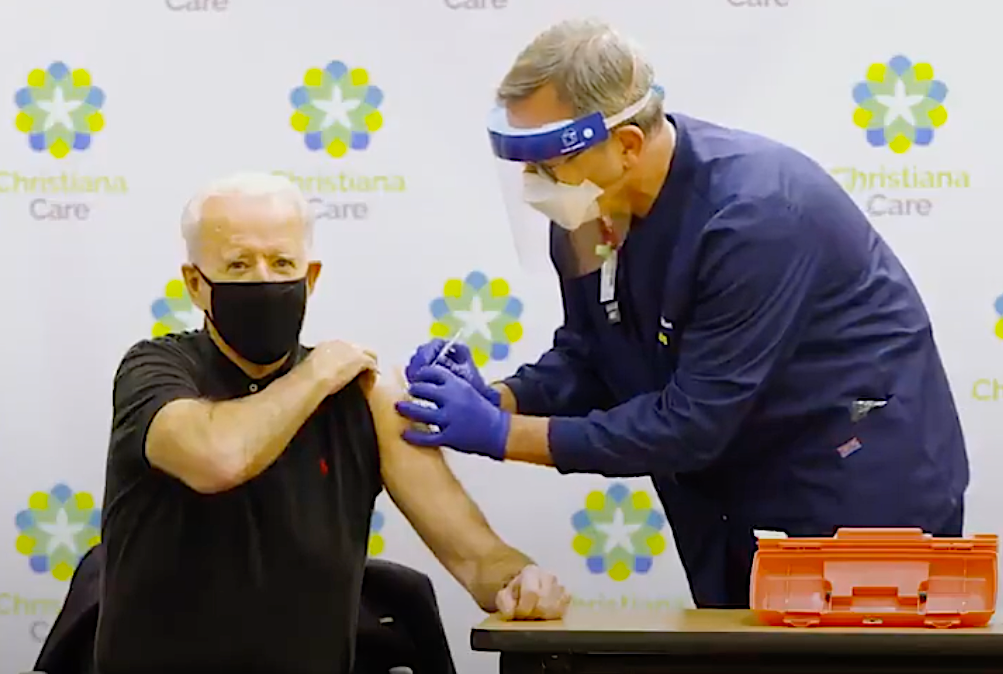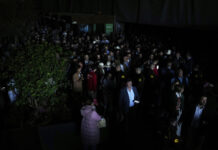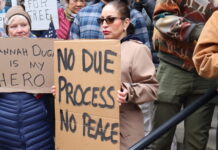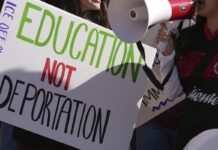
(GA Recorder) | WASHINGTON — Federal and state officials now face trying to reach Americans unable or unwilling to get the COVID-19 vaccine after meeting President Joe Biden’s goal of administering 200 million doses within his first 100 days in office.
To aid in that push, Biden on Wednesday called on employers to give their workers time off with pay to get vaccinated or to recover from any side effects from the shot.
“No working American should lose a single dollar from their paycheck because they chose to fulfill their patriotic duty of getting vaccinated,” Biden said.
That process doesn’t have to affect a business’s bottom line, Biden argued, highlighting a tax credit included in the latest coronavirus relief law for businesses and nonprofits that offer paid leave to their employees.
That tax credit will be available to businesses employing nearly half of all private sector employees in the country, according to the White House. The Internal Revenue Service posted a fact sheet on Wednesday detailing what employers need to do to claim the paid sick leave credit on their quarterly tax filings.
Data from the Centers for Disease Control and Prevention shows that more than 40% of the overall U.S. population and more than 51% of those over age 18 have received at least one vaccine dose so far.
Biden noted the progress made in vaccinating early priority groups, including senior citizens, health care workers, and those with underlying health conditions that put them at high risk. But he acknowledged that “broad swaths” of adults remain unvaccinated, and some younger Americans remain skeptical of whether they need a vaccine.
He credited an Ohio hair salon owner, Patty Young of Springfield, whose receptionist has helped to sign up clients for vaccine appointments along with their haircut appointments.
“Now our objective is to reach everyone, everyone over the age of 16 in America,” Biden said, adding: “If you’ve been waiting your turn, wait no longer.”
The unvaccinated
In a call with reporters Wednesday on state vaccination efforts, Dr. Nirav Shah, director of the Maine Center for Disease Control and Prevention, described three categories of those who are not yet vaccinated: people hampered by scheduling constraints or a lack of transportation; those who may not want it now, due to unanswered questions; and resisters who say they don’t ever want a vaccine.
Shah said state and local health officials aren’t writing off people in the final category and must work to find messages and messengers that they will trust.
“As we approach these groups, we have to do so with an attitude and tone of respect,” Shah said. “Treating earnest questions with disdain has never changed anyone’s mind.”
Asked about the Biden administration’s call to employers to provide paid time off for vaccinations and recovery, Shah replied that it’s not enough for vaccines to be delivered to a state or a hospital — barriers to accessing those vaccines must be removed, “whether that’s time off, or child care or transportation.”
Another potential obstacle has been the large number of vaccine vials in each shipping package, which must all be used within a short time frame once the packages are opened.
Dr. Steven Stack, commissioner of the Kentucky Department for Public Health, said states have been asking the federal government to urge vaccine manufacturers to reduce the number of vials in each package to ease distribution to settings that see fewer patients, such as primary care physicians.
Stack added that the federal government has been “well aware of our concerns” and that states have been told Pfizer will be transitioning to a smaller package by June.
Pause on one-shot dose
The shift to reaching those hesitant or skeptical of the vaccine comes as federal health regulators have paused use of the one-shot vaccine from Johnson & Johnson while they investigate a handful of cases of a rare but serious blood-clotting disease among women who received it.
Pausing the J&J shot has left two other options available to Americans. Those vaccines from Pfizer and Moderna both require two doses scheduled several weeks apart.
That’s slightly more challenging for officials who had planned to use the J&J version to quickly inoculate college students, homeless individuals, and others who may not easily be able to return for a second dose.
The federal pause, which regulators will review during a public hearing Friday, was the latest challenge for J&J’s vaccine rollout. The company had to discard 15 million doses that were incorrectly produced at a Baltimore manufacturing facility, which was awaiting approval from the Food and Drug Administration.
Agency investigators inspecting the Emergent BioSolutions plant released a report Wednesday identifying a series of shortcomings at the plant, including failure to properly disinfect equipment and improperly training employees. House Democrats also are investigating federal vaccine contracts won by the company during the Trump administration.







